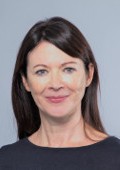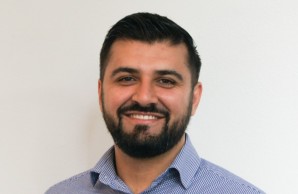Overview
Our group studies how aging influences cognition and emotion using behavioral tools, peripheral physiology as well as structural, functional and pharmacological neuroimaging methodologies. We have a major current focus being the differentiation between successful and non-successful aging with respect to emotional health. The latter seems to be maintained by compensatory and adaptive mechanisms in response to age-related life and brain changes. We want to know how the brain contributes to this adaptation and whether/why this adaptation is lacking in non-successful aging like late-life depression. In our current studies, we investigate how emotional resilience in aging but also in younger age is modulated by cognitive and emotional regulation strategies, lifestyle behavior (i.e. weight management) and – as part of the newly established CRC 289 - treatment expectations.
Postdocs
Arasch Mostauli Dr. med.
Based on the findings in our previous project, where we identified the role of central insulin in hedonic food valuation under normal and pathological conditions, I aim to investigate the role of central insulin sensitivity and prefrontal self-control for long-term weight management with special emphasis on older adults. To that end we employ a multimodal approach, where functional brain imaging techniques are combined with behavioural measures and medical assessments.
PhD Students
As part of the SFB-TRR 289, I am extending the line initiated in the prior project, where our group showed the crucial role of top-down control regulation processes and cognitive capacity in verbally induced positive expectations within the affective system. I employ a combination of behavioural paradigms and high-resolution brain imaging techniques to investigate the neurobehavioral mechanisms of positive expectation effects in emotional processing in aging. Moreover, I aim to develop and test a new, more implicit, expectation induction method and to compare it to the verbal induction approach.
I investigate the impact of neural fronto-limbic changes during aging on emotion regulation and appetitive decision-making in late life. I apply behavioural paradigms and neuroimaging techniques to investigate the role of emotion regulation strategies in the development of late-life depression (LLD). Additionally, I use pharmacological fMRI data to examine the effects of central insulin on hedonic eating behaviour and its implications for long-term weight management in late life.
Student Assistant
Jonas Pautmeier
Mira Rufeger
Eun Jin Shim
Leonie Schmidt
Alumni
Katrin Giesen, MD Physician
Judith Hettel, M.Sc. Psychology PhD student
Laura Katharina Sasse, Postdoc
Sophia Schneider, Postdoc
Paul Francke, cand. Med. MD student
Lena Tiedemann, M.Sc. Neuroscience PhD student
Riccardo Mattia Galli, M. Sc. Cognitive Neuropsychology PhD student
Vivien Breckwoldt, PhD Student
Joshua Baker, Postdoc
Friederike Thams, Postdoc
Jonas Rauh, MD Physician




